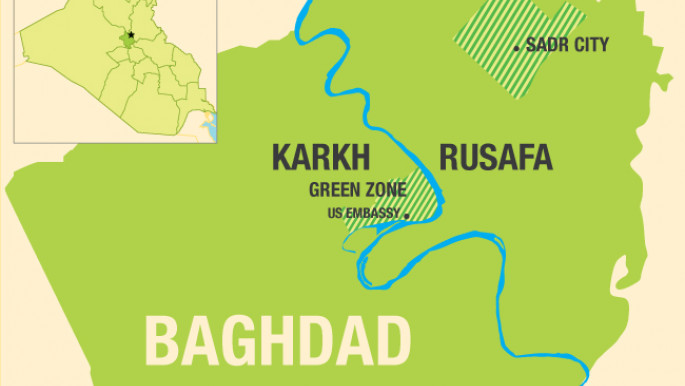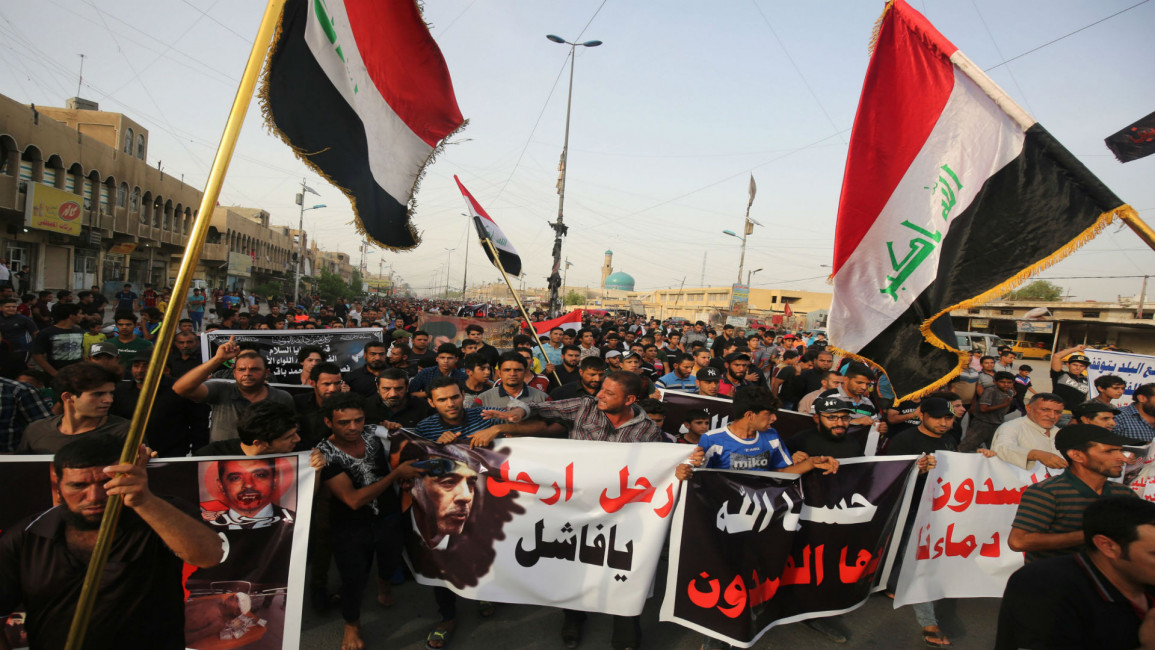Protesters in Sadr City blame government for Baghdad's carnage
Hundreds of residents of Baghdad's Sadr city, which was rocked by a devastating bombing that killed dozens of people, held a protest Thursday, blaming the government for the carnage.
Most of the demonstrators were supporters of Shia cleric Muqtada al-Sadr, who has a massive following in Sadr City, where at least 64 people were killed in a car bomb blast on Wednesday.
The attack, the worst to hit the Iraqi capital this year, was claimed by the Islamic State group, but the demonstrators blamed Iraq's political leaders.
"What happened is a reaction by the politicians, because we entered parliament," said Umm Abbas, a 38-year-old woman whose brother was killed in the bombing.
On 30 April, Sadr supporters who had been protesting for weeks to demand a cabinet reshuffle and reforms broke into the fortified Green Zone and stormed parliament.
"Politicians threatened us publicly and we thought there would be a campaign of arrests, but it seems they carried out this explosion instead," Umm Abbas said.
"It wasn't Daesh (behind the explosion, it's the politicians," said Abu Ali al-Zaidi, 45, using an Arabic acronym for IS.
 |
|
| [Click to enlarge] |
He and some of the other demonstrators chanted slogans demanding the resignation of Interior Minister Mohammed al-Ghaban.
Some of the protesters who did not go as far of accusing the government of plotting the bombing nonetheless charged that too little was being done to prevent such attacks.
"The government is supposed to put in place certain procedures to protect the people, but they are not offering anything," said Sheikh Kadhim Jassem, 72.
Two other bombings in Baghdad claimed 30 more lives on Wednesday.
Iraq has thousands of security personnel deployed in the capital, but searches at checkpoints are cursory if they take place at all, and fake bomb detectors are still in widespread use.
A months-old political crisis in Iraq has led to repeated mass demonstrations and has hampered the functioning of the government at a time when the country is battling the IS group on several fronts.
Security forces are currently engaged in large-scale military operations in the provinces of Anbar and Nineveh, where IS's two major remaining hubs in Iraq are located.
Iraqi forces have regained significant ground from IS, which overran large areas north and west of Baghdad in 2014.
But the jihadists still control significant territory in western Iraq, and are able to carry out frequent bombings in government-held areas.
The United States and the United Nations have warned the political impasse could undermine the fight against IS.


![Minnesota Tim Walz is working to court Muslim voters. [Getty]](/sites/default/files/styles/image_684x385/public/2169747529.jpeg?h=a5f2f23a&itok=b63Wif2V)




![Debris near Rafic Hariri International Airport [Getty]](/sites/default/files/styles/image_330x185/public/2176162423.jpeg?h=a5f2f23a&itok=MCSK9mkM)
![An Israeli air strike on Jabalia killed teenage journalist Hassan Hamad [Screengrab/X]](/sites/default/files/styles/image_330x185/public/2024-10/hassan%20hamad1.jpg?h=c12e0b96&itok=Rd_dyCVp)
